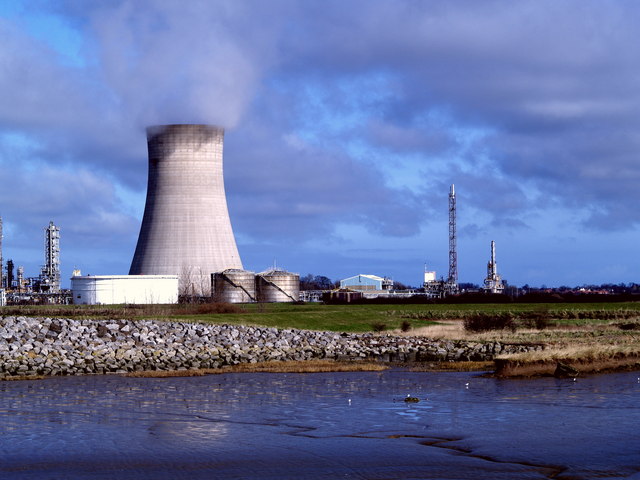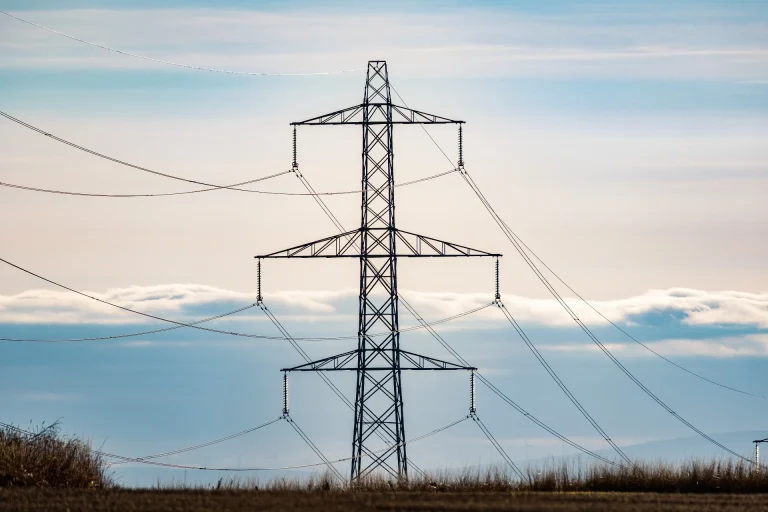SSE plc (LON:SSE) SSE Thermal and Equinor have entered into an agreement to acquire Triton Power Holdings Ltd from Energy Capital Partners for a total consideration of £341m shared equally between the partners.
The transaction represents another step forward for the two companies’ existing collaboration, supporting the long-term decarbonisation of the UK’s power system whilst contributing to security of supply and grid stability through flexible power generation in the shorter term. Following completion of the transaction, SSE Thermal and Equinor will jointly own and run Triton Power on a 50:50 basis.
Triton Power operates Saltend Power Station which is 1.2GW CCGT (Combined Cycle Gas Turbine) and CHP (Combined Heat & Power) power station located on the north of the Humber Estuary in East Yorkshire.
Saltend Power Station is a potential primary offtaker to Equinor’s H2H Saltend hydrogen production project. H2H Saltend is expected to kick-start the wider decarbonisation of the Humber region as part of the East Coast Cluster, one of the UK’s first carbon capture, usage and storage clusters.
In addition, the portfolio includes Indian Queens Power Station, a 140MW OCGT (Open Cycle Gas Turbine) in Cornwall, and Deeside Power Station, a decommissioned CCGT in north Wales which provides carbon-free inertia to the system.
Following the acquisition, SSE Thermal and Equinor will focus on using the Triton Power portfolio as a platform to develop more low-carbon projects to support the transition to net zero, building on the decarbonisation work already carried out by Triton.
The transaction underscores SSE Thermal and Equinor’s shared ambition to decarbonise the Humber, which is the UK’s most carbon-intensive industrial region, as well as the UK more widely. Initial steps to decarbonise Saltend Power Station are already underway, targeting partial abatement by 2027 through blending up to 30% of low-carbon hydrogen. In addition, carbon capture provides an additional valuable option for the site. SSE Thermal and Equinor will continue to work towards 100% abatement by 2035.
The transaction is expected to complete in September subject to UK National Security Filing and EU Merger Control.
SSE Thermal and Equinor Low-Carbon Thermal Partnership
The 82 existing employees of Triton Power will be employed by the joint venture in accordance with TUPE procedure. In line with Just Transition principles, the Joint Venture is committed to transitioning the assets for the net zero world through responsible ownership and operation, and in consultation with the local workforce and representatives.
This acquisition strengthens SSE Thermal and Equinor’s portfolio of joint projects, which bring together expertise in power, natural gas, hydrogen and carbon capture and storage. This portfolio includes three development projects within the Humber region:
· Keadby 3 Carbon Capture Power Station, which could be the UK’s first flexible power station equipped with carbon capture.
· Keadby Hydrogen Power Station, which could be one of the world’s first 100% hydrogen-fuelled power stations.
· Aldbrough Hydrogen Storage, located in East Yorkshire, which could be one of the world’s largest hydrogen storage facilities.
The two companies are also developing Peterhead Carbon Capture Power Station, situated on the Aberdeenshire coast in Scotland and there are further opportunities for hydrogen blending across SSE’s generation portfolio, including at Keadby 2.
SSE’s emissions pathways
In March SSE published its Net Zero Transition Plan aiming to achieve net zero emissions, by 2040 for scope 1 and scope 2, and by 2050 for scope 3. Interim Science-Based Targets, aligned to a 1.5°C pathway, support this net zero commitment.
Whilst this acquisition, once complete, will bring additional emissions onto SSE’s greenhouse gas emissions inventory in the short term, SSE will not rebase its existing Science-Based Targets for 2030. It therefore expects to emit no more greenhouse gas emissions in 2030 than it is currently targeting, despite the addition of operational power plants which provide important services to the GB electricity system.
Aligned with UK Government policy to deliver Carbon Capture and Storage clusters and a hydrogen economy, the assets provide low-carbon opportunities in the latter half of this decade. This acquisition will form part of SSE’s Net Zero Acceleration Programme (NZAP), which sets out plans to invest £12.5bn in the UK’s electricity infrastructure by 2026, including any further capital incurred to decarbonise the existing activities. The acquisition is also wholly aligned to SSE’s net zero pathway, reflecting the Group’s wider ambition to invest in projects with a low-carbon focus, and bolsters its options to deliver the more than 3GW of low-carbon flexible thermal and distributed generation targeted for FY31. SSE’s NZAP targets and EPS guidance remain unchanged following this acquisition.
Catherine Raw, Managing Director of SSE Thermal, said:
“Flexible energy will be absolutely essential as renewable energy scales up over the coming years, providing vital back-up while protecting security of supply. But the real prize will be how we decarbonise that flexible energy over the longer term, and we are excited, in particular, by the hydrogen and carbon capture opportunities at Saltend. Together with Equinor, we will explore every avenue to decarbonise Saltend and create new opportunities at other assets so they can play a continued role in a net zero future. We welcome our new colleagues and I look forward to working with them all as they play a critical role over the years ahead.”
Irene Rummelhoff, Executive Vice President Marketing, Midstream & Processing at Equinor, said:
“This acquisition together with SSE Thermal demonstrates our commitment to building a broad energy partnership with the UK. We will continue to work to supply the UK market with reliable energy and to reduce emissions by offering a transition to hydrogen through our hydrogen project H2H Saltend. Contributing to flexible power supplies with low CO2 emissions to support weather-dependent renewable energy is essential to ensure energy security through the energy transition.”








































